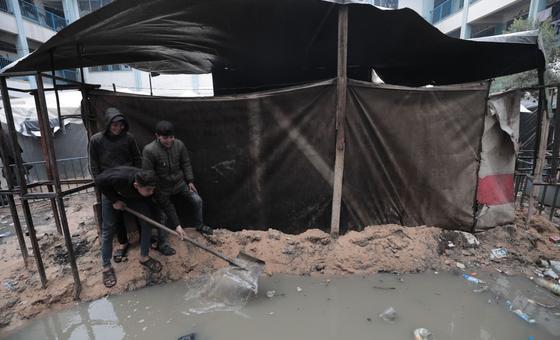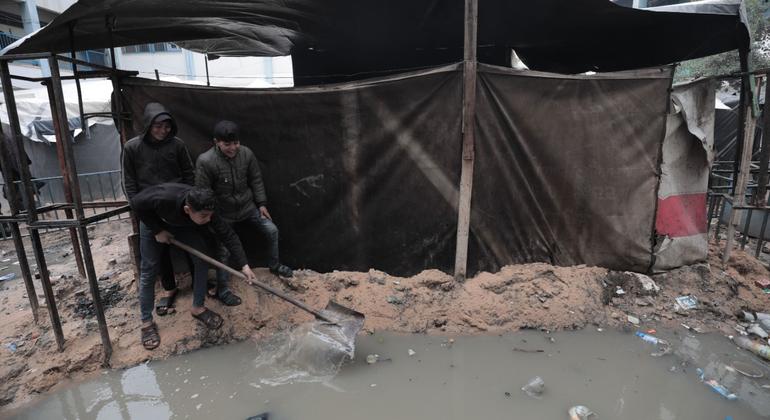
Nearly 1.5 million people are now crammed into the southern city on the border with Egypt, and with nowhere further to flee.
‘Terrifying’ situation
A potential full-fledged incursion in Rafah “is terrifying, given the prospect that an extremely high number of civilians, again mostly children and women, will likely be killed and injured,” Mr. Türk warned.
“Today, sadly, given the carnage wrought so far in Gaza it is wholly imaginable what would lie ahead in Rafah,” he added.
Aid delivery at risk
The incursion may also mean the end of the “meager” humanitarian aid entering Gaza, with huge implications, including for hundreds of thousands of people in the north of the enclave who are at grave risk of starvation and famine.
“My Office has repeatedly warned against actions that violate the laws of war. The prospect of such an operation into Rafah, as circumstances stand, risks further atrocity crimes,” Mr. Türk said.
The UN rights chief urged Israel to comply with the legally binding orders issued by the International Court of Justice (ICJ) and with the full span of international humanitarian law.
‘Accountability must follow’
Following a case brought forward by South Africa, the ICJ – the UN’s top court – declared last month that Palestinians had a right to be protected from acts of genocide, and called on Israel to “take all measures within its power” to prevent such actions and allow aid to enter Gaza.
“Those who defy international law have been put on notice. Accountability must follow,” said Mr. Turk.
“The world must not allow this to happen. Those with influence must restrain rather than enable. There must be an immediate ceasefire. All remaining hostages must be released. And there must be renewed collective resolve to reach a political solution.”
No safe place
Currently, there is no safe place in Gaza, UN Spokesperson Stéphane Dujarric said later on Monday during his regular briefing in New York.
Responding to a reporter’s question, he said the UN will not be party to the forced displacement of people, noting that most of Gaza’s population is now in the south.
Meanwhile, unexploded ordnance remains “a huge challenge” in north and south Gaza, he said, adding that “you can’t send people back to areas that are littered with unexploded ordnance, not to mention a lack of shelter.”
Mr. Dujarric also addressed the dire humanitarian situation in the enclave. He warned that current humanitarian supplies “may last us just days”, while not enough aid is getting in.
The UN and partners “are doing all we can” to deliver lifesaving assistance, he said, with aid partners reaching some 450,000 people weekly with a variety of health services.



